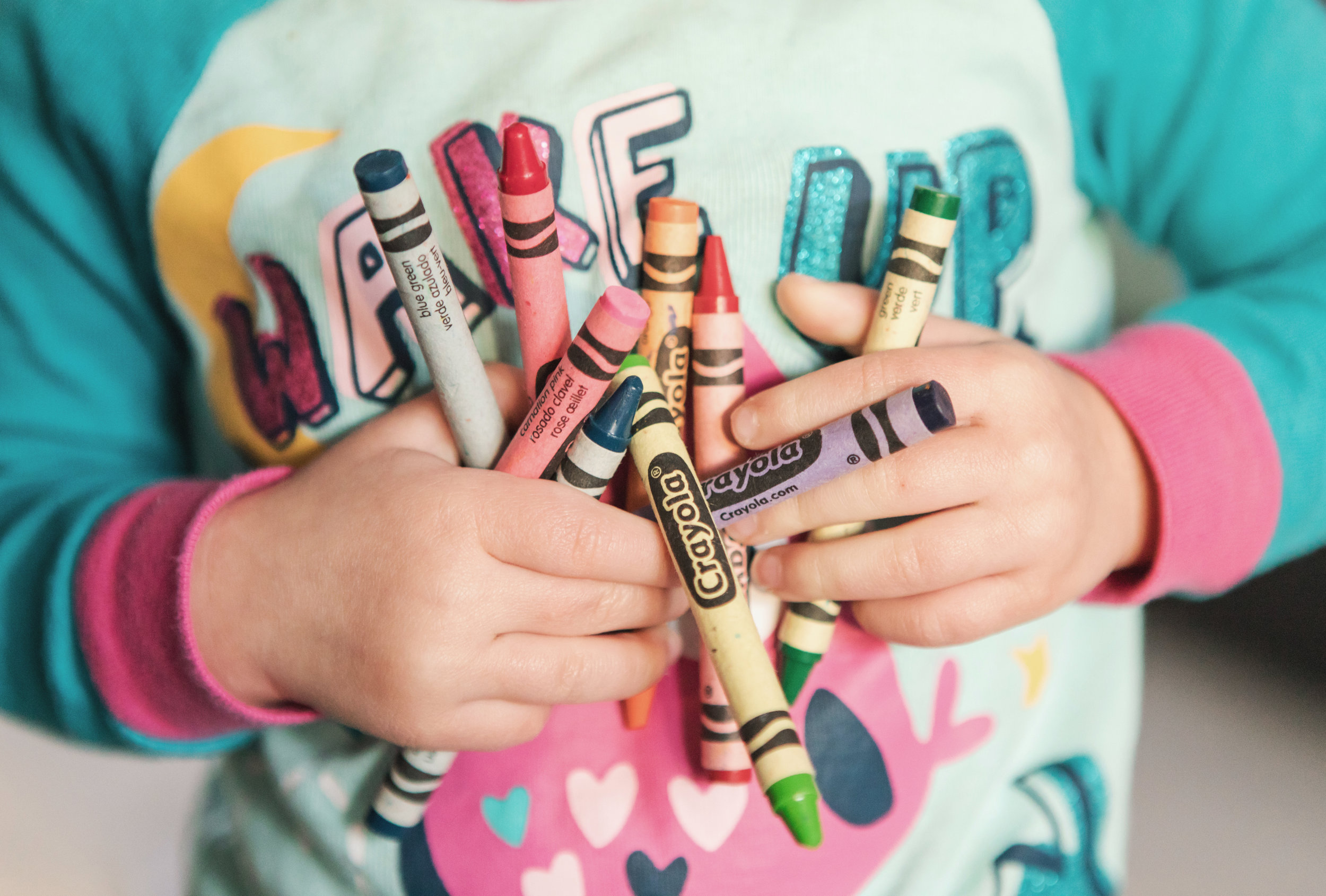How to Use Books to Support Children in Making Mistakes
Disclosure: As an Amazon Associate I earn from qualifying purchases. Some of the links below are affiliate links. This means that, at zero cost to you, I will earn an affiliate commission if you click through the link and finalize a purchase.
It seems like a regular Tuesday morning, Emerson is sitting at the table working on her crown creation. She’s been there all morning, working meticulously to ensure she gets everything just right. Emerson loves art. Finally, the decoration on her crown is finished. Now to cut it out, Emerson selects her scissors and begins to carefully cut around her crown. Suddenly, she screams and cries, throwing the scissors and the crown across the table. You go over to see what is wrong and learn that Emerson cut over the line. You offer some tape to repair the erroneous cut. Emerson begins to become increasingly frustrated. Her cries are louder now, her face is turning red and her hands have started to become fists. Tape will not work, it is still broken and a mistake was still made. Suddenly, art materials are flying from the table as Emerson is no longer in control of her body.
Sound familiar? For some children, making mistakes is unbearable. Of course, not all children respond like Emerson. Some children have the opposite reaction and shut down. Many children are unable to admit that they made a mistake at all (it was usually someone else’s fault). As a parent, teacher, therapist, caregiver, it is heartbreaking to witness young children being so hard on themselves. Everyone makes mistakes and yet at times those mistakes can feel so big and life-altering.
“Books are a great way to introduce ‘trickier’ concepts. So often it’s easier to talk about less comfortable situations when discussing characters or other people. ”
So how can we help?
Children can learn that mistakes are expected and a natural part of life and we have a list of book recommendations to start those conversations!
Books are a great way to introduce ‘trickier’ concepts. So often it’s easier to talk about less comfortable situations when discussing characters or other people. It can be painful to talk about your own mistakes or embarrassments.
Not only do books open the door to start these conversations, they’re also fun and engaging to read – even if you’re a mistake-making-pro :-).
So let’s get to it!
Seven Books Discussing Making Mistakes
1 “The Book of Mistakes” by Corinna Luyken
Why we Love it: Corinna talks about mistakes in a factual and true fashion. We love the simple vocabulary she uses – she recognizes and talks about mistakes in a calm and matter-of-fact manner. We all work to channel our inner Corinna when we discuss mistakes ;-). The art in this story is beyond amazing. Children love to watch what happens to the mistakes and how the artist turns the mistakes into something so much more (seriously, watch out for the cat/dog/cow thing!).
2. “The Most Magnificent Thing” by Ashley Spires
Why we Love it: The girl’s assistant is a pug. Okay, beyond that, we also love how hard she works to bring her ‘most magnificent’ idea to life. We watch and feel for her as she tries and tries and tries to re-create this image that she can see in her head. We can sense her frustration and distress as things just. aren’t. working. We relate to her when she’s finally just had enough. And we celebrate when she takes some time (with the help of her fantastic assistant) and then revisits the situation. This book presents mistakes in a way that feels real and relatable.
3. “Beautiful Oops” by Barney Saltzberg
Why we Love it: Art can be frustrating. You’re in the middle of creating a beautiful picture and whoops, the line goes wobbly. There isn’t an ‘undo’ button and now your picture is ruined. If I had a nickel for every larger reaction or meltdown that happened because of mistakes during art, I wouldn’t be sitting here writing this article ;-). This book provides perfect examples of cognitive flexibility in the face of mishaps and mistakes. To make things even better, the illustrations are vibrant and creative. There are lift-the-flap type elements and yet it’s not a ‘baby book’.
As an added bonus, Barney Saltzberg has also created a companion workbook – specifically designed for turning ‘mistakes’ into art. Practicing these common mistakes helps children to learn that they can handle these situations and provides practice for problem solving. And yes, we know that intentional mistakes aren’t mistakes, but goodness are they wonderful teaching tools!
4. “ish” by Peter Reynolds
Why we Love it: Meet Leon. Leon is a child who loves to create art. That all changes when his older brother makes fun of one of his drawings. Afterwards, all Leon can see are the mistakes in his artwork. Luckily, Leon’s little sister sees the beauty in his art and helps Leon notice the ‘ish’ in his art. Amidst complicated sibling relationships, ‘ish’ helps celebrate ‘ish’ work. When Leon has plans to draw a tree, it might be tree-ish. His boat might look boat-ish. Adults and children alike could benefit from adding more -ish endings to their work and life ;-).
5. “Even Superheroes Make Mistakes” by Shelly Becker
Why we Love it: Superheroes, need we say more? This book is fun and light. We visit with superheroes as they make their own mistakes while trying to save the world. When mishaps happen, the superheroes go back to the drawing board to figure out what to change and what they can learn from their mishaps.
6. “The Girl Who Never MaDe Mistakes” by Mark Pett and Gary Rubinstein
Why we Love it: Beatrice is well known around town for never making a mistake – ever. While not explicitly stated in the text, as you spend time with Beatrice and her classmates, you can highlight the struggle that this label and this belief causes for Beatrice. Her friends have a great time ice-skating and yet Beatrice feels she cannot join in because she might fall over. The book ends with Beatrice making her first mistake – a big, public, mistake. After this happens, yes the paparazzi are gone but now Beatrice is free to just be a kid. This is definitely a ‘add on as you read’ type of book. It’s important to highlight the nonverbals and ‘hidden messages’ in this book to help emphasize that it’s not about being famous for never making mistakes. It’s about living life to the fullest while making mistakes.
7. “Was that ‘on purpose’ or ‘by accident’?” by janelle fenwick
Why we Love it: Well, I did write it ;-). But no, in all honestly, I wrote this book out of a need for a way to explain the difference between doing things ‘on purpose’ and doing things ‘by accident’. Accidents are mistakes that we make when we’re thinking about doing other things. It’s vital for children to understand that different people have different thoughts and ideas. As a result of this, it is completely possible for one child to do something ‘by accident’ and for another to perceive it as being ‘on purpose’. For children in a preschool setting, understanding the idea of ‘accidents’ is a vital skill. Oh so many accidents happen at preschool ;-).
As an added bonus, this book is available for free – yup. Understanding this concept is such an important skill that this book is available to download for free. So snatch up your copy of Was that “On Purpose” or “By Accident”? and let me know what you think! Also be sure to check out our blog post What to do if your Child Struggles with Mistakes for even more strategies and ideas.








